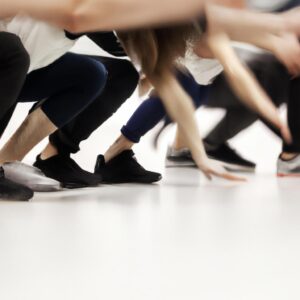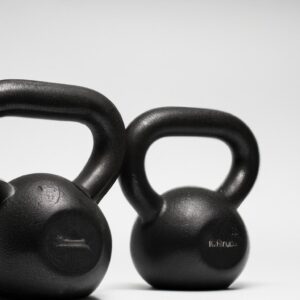**”The Role of Adaptive Sports in Fostering Leadership Skills: How Participation Empowers Athletes with Disabilities”**
# The Role of Adaptive Sports in Fostering Leadership Skills: How Participation Empowers Athletes with Disabilities
Adaptive sports have evolved significantly over the years, transforming the landscape of athletic participation for individuals with disabilities. Beyond the physical benefits, these sports serve as a powerful platform for fostering leadership skills and personal development. This blog post explores how participation in adaptive sports empowers athletes with disabilities, nurturing not just their physical capabilities but also their leadership potential.
## The Importance of Adaptive Sports
Adaptive sports are designed to enable individuals with disabilities to participate in competitive and recreational physical activities. These sports create an inclusive environment that encourages athletes to push their limits, develop resilience, and cultivate essential life skills. The camaraderie and teamwork inherent in adaptive sports promote social interaction and a sense of belonging, which can be particularly empowering for athletes with disabilities.
### Building Leadership Skills Through Participation
Participation in adaptive sports can be a transformative experience for athletes, fostering critical leadership skills in several ways:
#### 1. Teamwork and Collaboration
In adaptive sports, athletes often work closely with teammates and coaches, fostering a sense of unity and collaboration. This experience teaches athletes how to communicate effectively, resolve conflicts, and support one another. These teamwork skills are invaluable, as they can translate to various aspects of life, from academic settings to professional environments.
#### 2. Goal Setting and Achievement
Adaptive sports encourage athletes to set personal and team goals, instilling a sense of purpose and direction. Whether striving for a personal best or competing in a championship, athletes learn to break down larger objectives into manageable tasks. This goal-oriented mindset is a hallmark of effective leadership, enabling individuals to inspire and guide others toward shared aspirations.
#### 3. Overcoming Challenges
Athletes with disabilities face unique challenges, both in sports and in life. Participation in adaptive sports enhances problem-solving abilities and resilience as athletes learn to navigate obstacles, adapt to changing circumstances, and maintain a positive attitude. These experiences build confidence and empower athletes to tackle challenges head-on, qualities that are essential for effective leadership.
### Nutrition Tips for Adaptive Athletes
Proper nutrition is crucial for maximizing performance and maintaining overall health. Here are some tailored nutrition tips for adaptive athletes:
#### 1. Balanced Diet
Aim for a well-balanced diet rich in fruits, vegetables, lean proteins, whole grains, and healthy fats. This variety ensures that your body receives the essential nutrients it needs for optimal performance and recovery.
#### 2. Hydration
Staying hydrated is key for athletes of all abilities. Drink plenty of water before, during, and after training sessions to maintain peak performance levels. Incorporating electrolyte-rich beverages can also be beneficial, especially during intense activities.
#### 3. Pre- and Post-Workout Nutrition
Consume a light snack or meal rich in carbohydrates and protein before workouts to fuel your body. Post-workout, focus on replenishing lost nutrients with a balanced meal that includes protein for muscle recovery and carbohydrates for energy restoration.
### Exercise Advice for Adaptive Athletes
Regular exercise is vital for building strength, endurance, and flexibility. Here are some exercise recommendations tailored for adaptive athletes:
#### 1. Flexibility and Mobility Exercises
Incorporating stretching and mobility exercises into your routine can enhance flexibility, reduce injury risk, and improve overall performance. Focus on both upper and lower body stretches tailored to your specific needs.
#### 2. Strength Training
Strength training can be adapted to various abilities, utilizing resistance bands, body weight, or specialized adaptive equipment. Aim for two to three strength training sessions per week to build muscle and improve functional movement.
#### 3. Cardiovascular Conditioning
Engaging in cardiovascular activities, such as wheelchair racing, adapted cycling, or swimming, can improve heart and lung health. Aim for at least 150 minutes of moderate-intensity cardio each week, broken down into manageable sessions.
### Health Benefits of Adaptive Sports
The benefits of participating in adaptive sports extend beyond physical fitness. Some of the key health benefits include:
– **Improved Mental Health**: Physical activity releases endorphins, reducing stress, anxiety, and depression. The social aspect of adaptive sports also fosters a sense of community, which can combat feelings of isolation.
– **Enhanced Physical Fitness**: Regular participation in adaptive sports can lead to improved strength, flexibility, endurance, and overall physical health. This contributes to a higher quality of life and increased independence.
– **Increased Self-Esteem**: Achieving personal goals and overcoming challenges in sports can boost self-confidence and self-worth, empowering athletes to take on leadership roles in their communities.
## Conclusion
Adaptive sports play a crucial role in empowering athletes with disabilities, offering them the opportunity to develop essential leadership skills while enhancing their physical and mental well-being. Through teamwork, goal-setting, and resilience, these athletes learn to navigate challenges and inspire others, fostering a sense of community and belonging. As we continue to promote inclusive athletic opportunities, it is vital to recognize the profound impact of adaptive sports on the lives of individuals with disabilities, shaping not only successful athletes but also confident leaders of tomorrow.















Post Comment